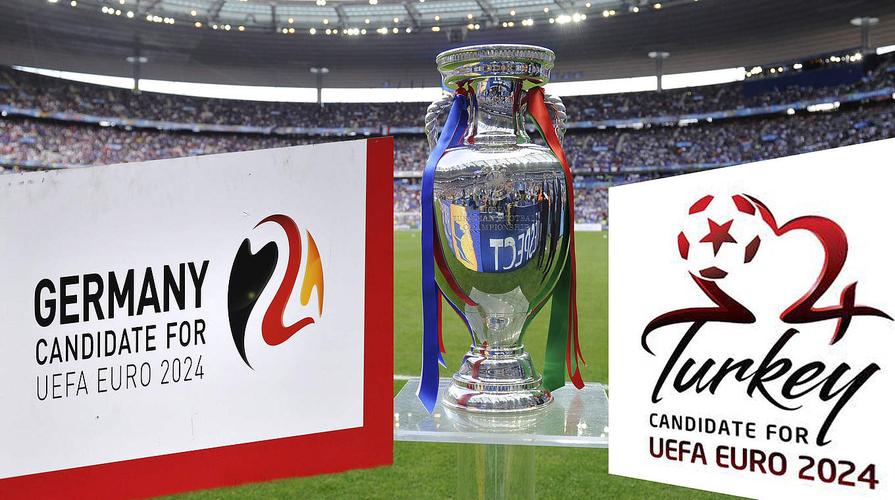TheGermanOdyssey:ADeepDiveintotheEuropeanChampionshipJourney
Introduction
The European Championship, often referred to as the Euros, is one of the most prestigious tournaments in the world of football. For Germany, a country with a rich football heritage, participation in the Euros is not just a competition but a significant part of their sporting culture. This article explores Germany's journey through the European Championships, highlighting key moments, transformative players, and the impact of these tournaments on the nation's football identity.
Historical Context
Germany's football history is deeply intertwined with the European Championship. Since the tournament's inception in 1960, Germany has been a consistent participant, showcasing their prowess on the international stage. The German national team, known for its tactical discipline and resilience, has won the Euros three times (1972, 1980, and 1996) and has been a runnerup three times, demonstrating their enduring strength in European football.
The Golden Era: 1970s and 1980s
The 1970s marked the beginning of a golden era for German football. Under the leadership of legendary coach Helmut Schön, the team won their first European Championship in 1972, with a squad that included iconic players like Franz Beckenbauer and Gerd Müller. This victory was followed by another in 1980, solidifying Germany's status as a dominant force in European football. The team's tactical flexibility and mental toughness were hallmarks of this era, traits that continue to define German football.
The Modern Era: Challenges and Triumphs
The 1990s and 2000s saw Germany facing new challenges and experiencing a mix of triumphs and disappointments. The 1996 European Championship, held in England, was a high point, with Germany lifting the trophy after a dramatic final against the Czech Republic. However, subsequent tournaments were less successful, with the team struggling to replicate their past glories. The early 2000s were particularly challenging, as Germany failed to advance past the group stages in both the 2000 and 2004 Euros.
Rebuilding and Resurgence
The disappointments of the early 2000s prompted a significant overhaul of the German football system. A focus on youth development and tactical innovation led to a resurgence in the national team's fortunes. The appointment of Joachim Löw as head coach in 2006 marked the beginning of a new era. Under Löw, Germany reached the semifinals of every European Championship from 2008 to 2016, a testament to the effectiveness of the rebuilding efforts.
Current Landscape and Future Prospects
As Germany prepares for the upcoming European Championships, the team faces a blend of familiar challenges and new opportunities. The integration of young talents like Kai Havertz and Timo Werner, coupled with the experience of veterans like Manuel Neuer, presents a balanced squad capable of competing at the highest level. The future of German football looks promising, with a strong emphasis on maintaining a competitive edge through continuous development and adaptation.
Conclusion

Germany's journey through the European Championships is a narrative of resilience, innovation, and enduring success. From the golden era of the 1970s to the modern challenges of the 21st century, the German national team has consistently demonstrated its ability to evolve and excel. As the Euros continue to shape the landscape of European football, Germany remains a central figure, embodying the spirit of competition and the pursuit of excellence.
This exploration of Germany's participation in the Euros not only highlights their historical achievements but also underscores the importance of strategic planning and player development in maintaining a competitive edge in international football. As the next European Championship approaches, all eyes will be on Germany, eager to witness their latest chapter in this storied football saga.
体育资讯
MORE>-
02-23少女花150元文身,清洗需76.9万元
-
02-23哪吒周边市场惊现盗版,商家获利200万元
-
02-23一场激情与实力的碰撞——预测与故事
-
02-23美国将完全退出联合国?联合国回应
-
02-23特朗普撤换美军最高将领,影响与后果
-
02-23俄罗斯与比利时实力对比与前景展望
-
02-22历史对决,实力较量——一场激情与智慧的足球盛宴
-
02-22欧洲杯积分榜——最新赛况与分析
-
02-22世界级对决,谁能笑到最后?
-
02-21瑞士VS威尔士,竞技与友谊的交织之旅
-
02-21房价止跌回稳,一线城市房价将保持稳定
-
02-21征服哥本哈根,曼彻斯特城在英超联赛中的实力与决心
-
02-21员工偷换理发店收款码3年窃取189万,道德沦丧还是管理漏洞?
-
02-21国产剧告别假穷人,真实主义的胜利
-
02-21布鲁日 vs 马竞——引言与引子碰撞的精彩时刻
- 搜索
- 最近发表
-
- 春回大地农事起 春耕备耕正当时
- 少女花150元文身,清洗需76.9万元
- 一届震撼人心的全明星赛——2012年NBA全明星录像回顾与解读
- 老师一堂课没收几十个裂空爪
- 法国在国际足坛的荣耀新篇章,从欧洲最后堡垒的黯淡到王者归来
- 内地版萧亚轩——张雨绮
- 从NBA全明星赛录像,解读2023年扣人心弦的赛事
- 外卖小哥的感激之情
- 超级巨星云集,美国足球联赛的燃情较量即将上演!
- 农文旅融合绘就美丽乡村新图景
- 史诗般的半决赛之旅,不容错过的精彩瞬间
- 哪吒周边市场惊现盗版,商家获利200万元
- 一场激情与实力的碰撞——预测与故事
- 美国将完全退出联合国?联合国回应
- 梦幻十一人,解读巴塞罗那最佳阵容,定义卓越表现与潜力展示
- 特朗普撤换美军最高将领,影响与后果
- 西方世界视角下的袁隆平,一位影响深远的中国科学家
- 小因扎吉引领国际米兰新篇章,深度解析与实用建议
- 俄罗斯与比利时实力对比与前景展望
- 孙莉再战大银幕,女神归来的魅力依然闪耀,唐诗三百首的全新演绎
- 标签列表
-
- 欧洲杯 (9)
- 欧洲杯都有哪些球队参加 (13)
- 2024欧洲杯比赛时间 (14)
- 2024欧洲杯百度百科 (18)
- 2024年欧洲杯预选赛 (15)
- 欧洲杯为什么不是2020 (8)
- 欧洲杯如何竞猜 (9)
- 欧洲杯小组赛怎么分组 (11)
- 欧洲杯2024在哪个国家 (9)
- 欧洲杯比赛时间表 (8)
- 在哪里可以看欧洲杯预选赛 (11)
- 欧洲杯在哪个国家举行2024 (10)
- 2024欧洲杯主办城市 (16)
- 欧洲杯为什么没有中国 (12)
- 欧洲杯哪个球队身价最高 (9)
- 欧洲杯多少支球队参加 (11)
- 欧洲杯共多少场比赛 (11)
- 欧洲杯的球队有哪些 (9)
- 欧洲杯为什么没有直播 (9)
- 欧洲杯参赛球队有几支 (15)
- 欧洲杯一共多少球队 (11)
- 咪咕视频体育直播 (12)
- 世界杯亚洲区预选赛 (9)
- 直播吧 (14)
- 直播间买翡翠原石被骗 (9)





